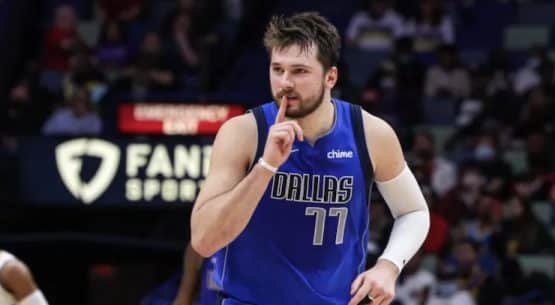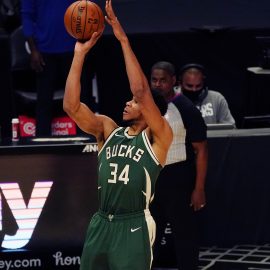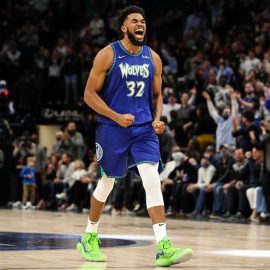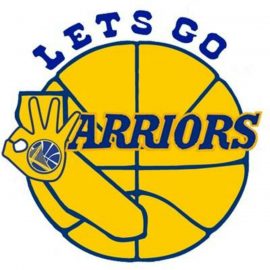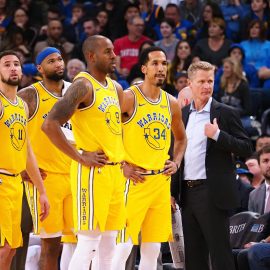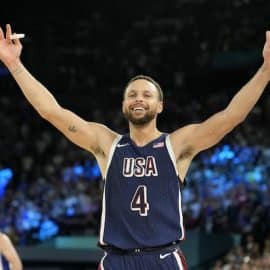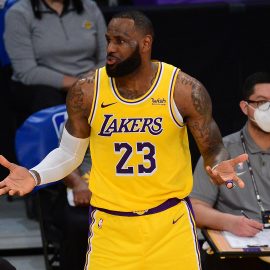After being aggressive in recent years and seeing it fail to pay off, the Phoenix Suns’ front office went the more subtle route, drafting players and adding locker-room vets via free agency. What grades did they earn with their moves this offseason?
No team wants to go through a rebuild, but for every team that doesn’t wear “Spurs” emblazoned on their chest, rebuilds are inevitable. The process seems straightforward – offload expensive veteran contracts, gather assets, draft young cost-controlled players who will be the future stars for the franchise, and start an upward climb back to relevancy. But rarely is it that simple.
Some teams nail the timetable perfectly, drafting a core of stars and riding them to success. Oklahoma City is the clear example of the recent past, and perhaps the current Minnesota Timberwolves group will join them.
For some the timetable slows until another key move triggers the jump – that would be Golden State, or the Clippers. Many never get that key move, and languish in mediocrity for years, re-entering the rebuilding cycle again and again.
Other teams bounce too quickly, racing out of the rebuild into relevancy before their roster can sustain their success. They lose out on a top pick, excite their fan base, and promptly crash back to earth. Last year the Milwaukee Bucks followed this model; two years ago it was the Phoenix Suns.
Led by then-new head coach Jeff Hornacek, the 2013-14 Phoenix Suns ran opponents off the court. The two-headed point guard attack of Goran Dragic and Eric Bledsoe pushed the ball in transition, ran pick-and-pops with Channing Frye, and unleashed the power of the Morrii twins (Marcus and Markieff Morris). A year after winning 25 games, Phoenix racked up 48 wins, a total that fell just shy of the playoffs.
The next season things fell apart, and Phoenix began a two-year slide that saw them win only 23 games, fourth-fewest in the NBA. Dragic, Frye, the Morris twins, and Hornacek are all plying their trades elsewhere. Eric Bledsoe remains, but after his third knee surgery in five seasons his future is uncertain.
For a Phoenix team wanting to implement a successful rebuild, to recapture the joy and wins of the Steve Nash era, to put together a deep core for sustained contention, this offseason was key. Would the Suns languish amongst the worst in the league? Or could they make the moves necessary to climb back into the playoffs?
Phase One: The Draft
Last year the Suns drafted Devin Booker, a sharpshooter out of Kentucky, another Wildcat guard for a team stocked with them. That turned out to be a great move, as Booker stepped into the holes left by injuries to Bledsoe and Brandon Knight to make the All-Rookie First Team.
This year Phoenix brought three big chips to the table, holding the fourth, 13th, and 28th picks in the draft. Their needs were at both forward spots, where the aging P.J. Tucker and one-dimensional T.J. Warren were the only options.
No one could say the Suns didn’t go after talent. Most draft analysts saw a step down after the first eight players in the draft. Phoenix used their first pick on Dragan Bender, a lanky big with passing and shooting skills rare for his size. They then used their other picks to leap up to eighth and take Marquese Chriss, another stretch-4 with endless athletic potential and equally lengthy questions.
Both picks were solid value; Bender could easily turn out to be the second-best player in this draft, a player in the “unicorn” mold of rim protector and three-point shooter. Chriss is a polarizing prospect, one who could be the next Serge Ibaka – or the next Anthony Bennett.
Some draft analysts may quibble that Phoenix took two players who play the same position, but for a 23-win team that isn’t a concern. With no long-term power forward on the roster, Phoenix now has two shots to find one. If both hit, then Bender could slide to center in time, giving the Suns two athletic bigs who can space the floor.
In the second round Phoenix drafted Tyler Ulis, another Kentucky guard who was touted as a lottery pick only weeks before the draft. In Summer league Ulis erupted, scoring at will from all over the court and dishing out assists to teammates.
Phoenix did not have an opportunity to draft Ben Simmons, nor did it make sense with their current roster to add a player such as Kris Dunn. Given their roster needs and draft slots, the Suns made solid picks to add talent. Their coaching and development staff will now play a major role in preparing the two raw talents for long NBA careers. If Ulis turns into a rotation player, that’s only gravy.
Draft Grade: B+
Phase Two: Free Agency
Last season the Suns made a strong run in free agency, signing veteran center Tyson Chandler and making it further than expected in talks with LaMarcus Aldridge. But Aldridge signed with the Spurs, and Chandler bounced between missing games due to injury and blocking young center Alex Len from minutes.
This season Phoenix eased off of the throttle, going after smart veteran role players instead of splashy signings. Jared Dudley is a consummate teammate and professional, a benefit to every locker room he joins. Returning to Phoenix he gives them depth at both forward positions and a role model for their young core. At $10 million per year, he comes at a reasonable price.
The Suns doubled down on their nostalgia strategy, bringing back Leandro Barbosa to join the guard rotation. Although Barbosa has no ties to the University of Kentucky, he does bring a tie to the “8 Seconds or Less” teams of the Aughts. At $4 million a year, he can be a spark plug for the offense off the bench, and a strong voice in the locker room.
Alan Williams and John Jenkins were the only two other signings this offseason, both in contention for the last spot or two on the roster. Both theoretically bring shooting on the wing, but Jenkins has been an NBA disappointment since entering the league, and Williams has struggled to stay employed.
If the Suns’ goal was to speed up their rebuild, then they did little in free agency to propel them up the standings. But their goal seems to be creating a solid foundation for the next great Phoenix team. To that end, signing heady veterans who can help on and off the court was an insightful move for a front office maligned for recent years.
Free Agency Grade: B
Playoff-bound?
In the end, Phoenix did little to move the needle this year. There is hope Bledsoe will be healthier, a needed development for the Suns. When healthy, Bledsoe is a fringe All-Star guard who plays 100 percent on both ends of the court.
Devin Booker is a legitimate talent, able to shoot the ball as well as any other player outside of Golden State. His athleticism means average defense could be in his future, at the least, and shooting will always be needed. While the young talent around him – Len, Bender, Chriss – is unproven, there is potential there for a strong core.
Phoenix will win more games this season than last, with a stable coaching situation and hard-working players replacing those more interested in drama last season. Dudley and Barbosa will work to add a win or two themselves, but more-so will help this team play well together now and in the future.
But in a Western Conference where every team other than the Thunder think they got better this offseason, the Suns will have to do more than draft a pair of teenagers and sign a 33-year old fifth guard. They laid the groundwork for future success, but another bottom-five finish is in their future.
Prediction: 32-50, #5 pick in the 2017 NBA Draft
Add The Sports Daily to your Google News Feed!
